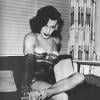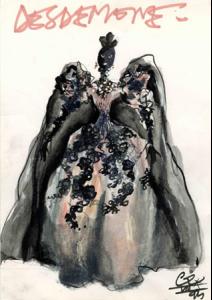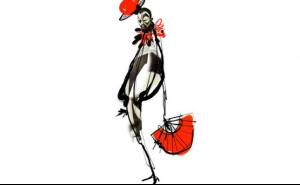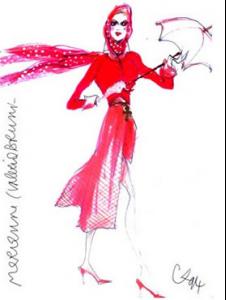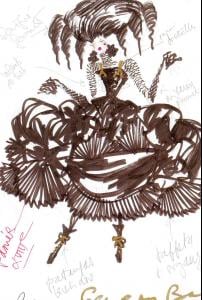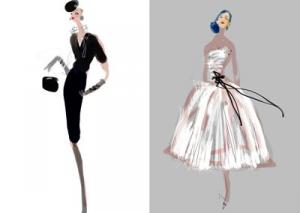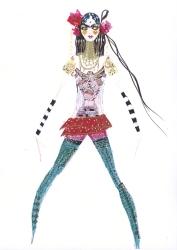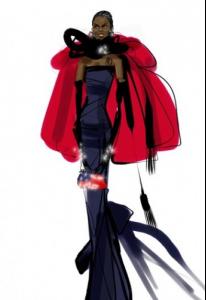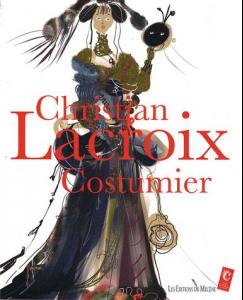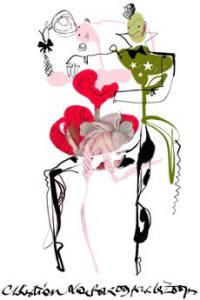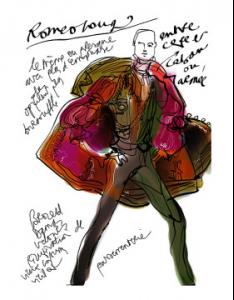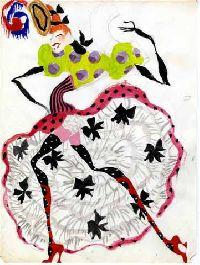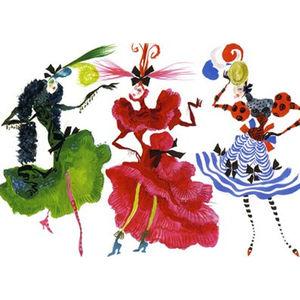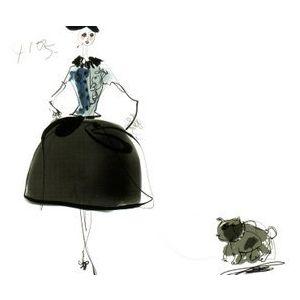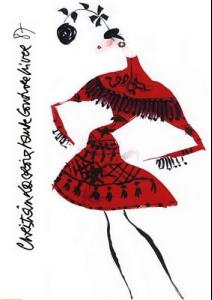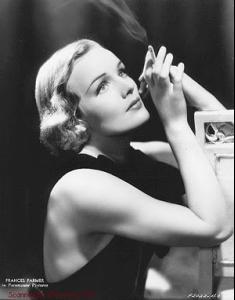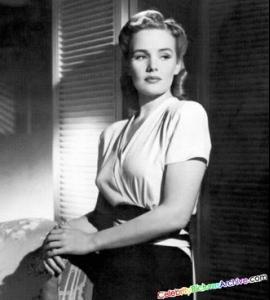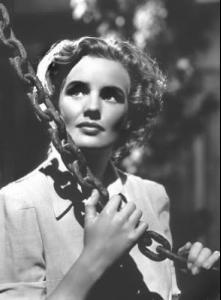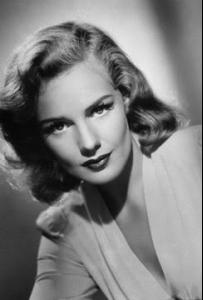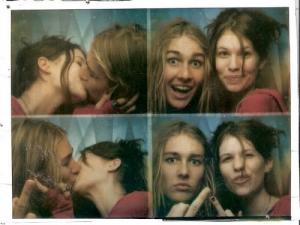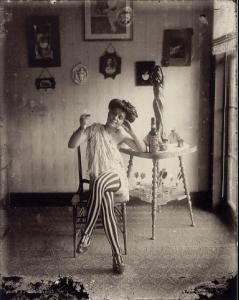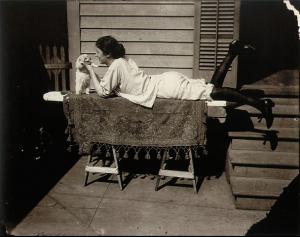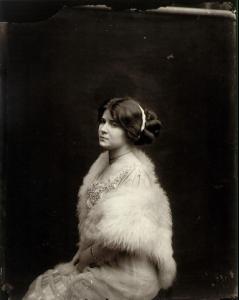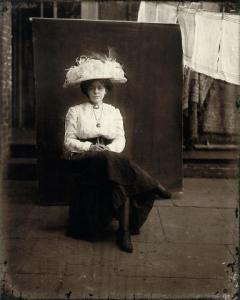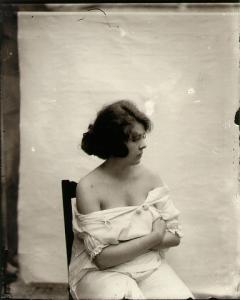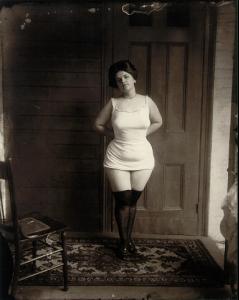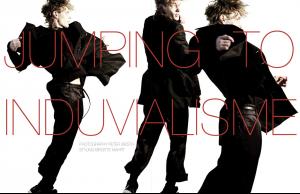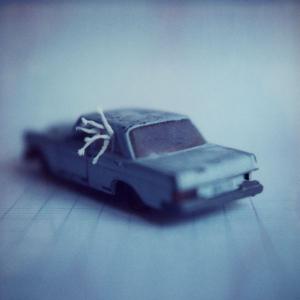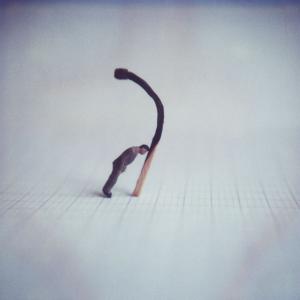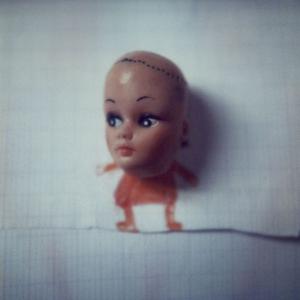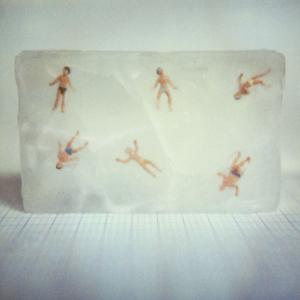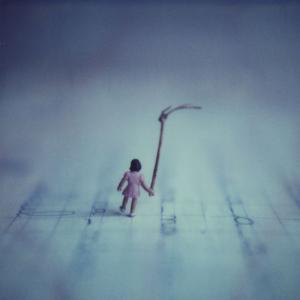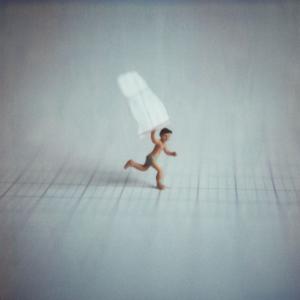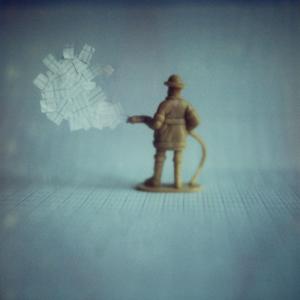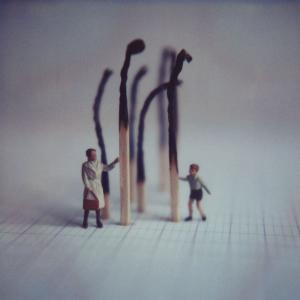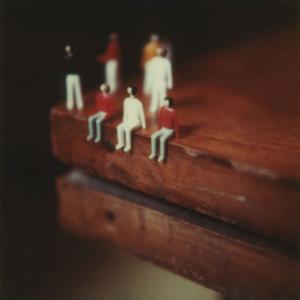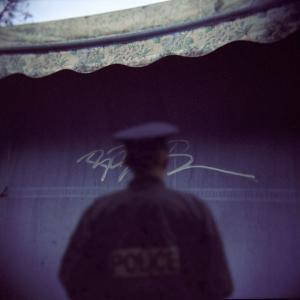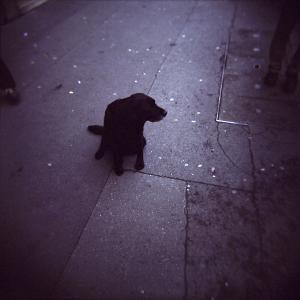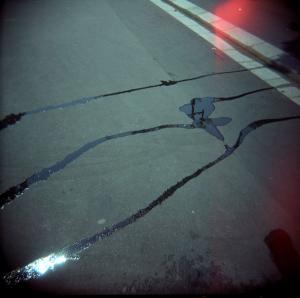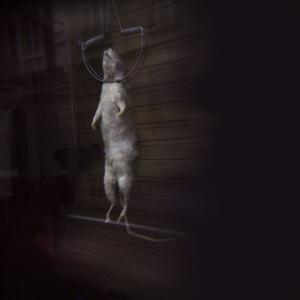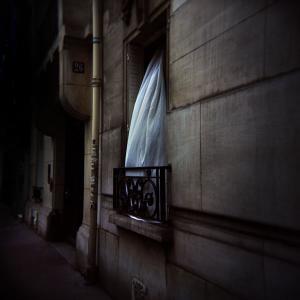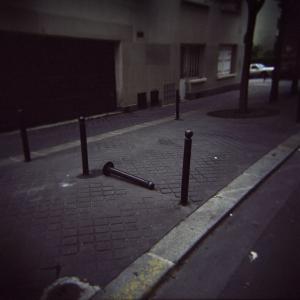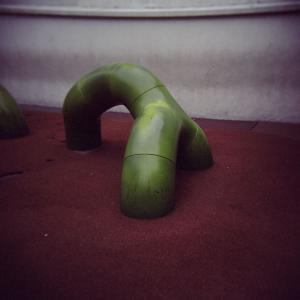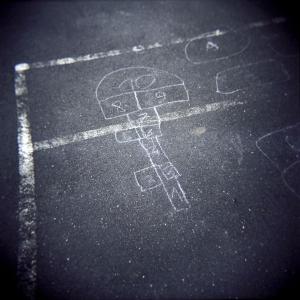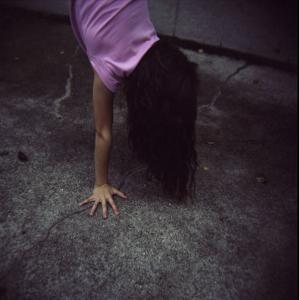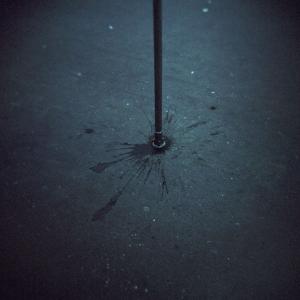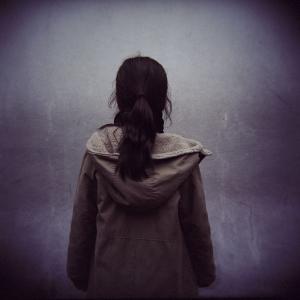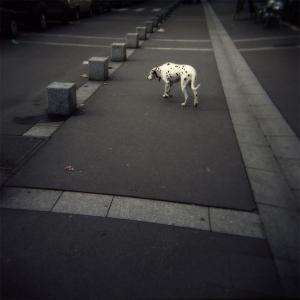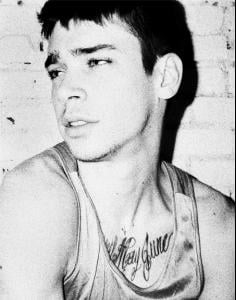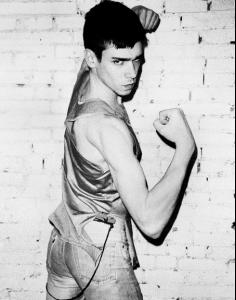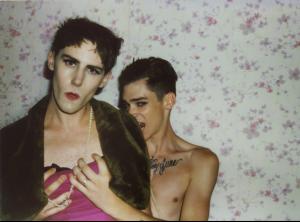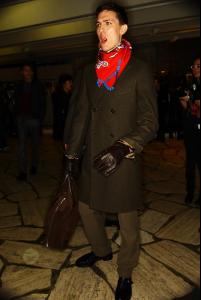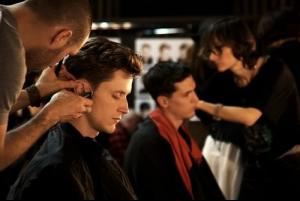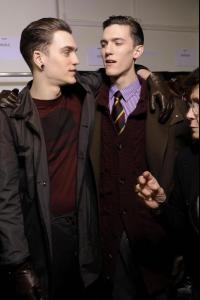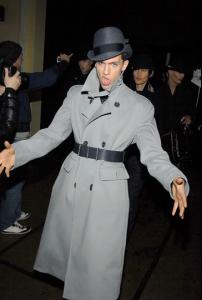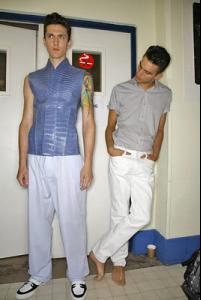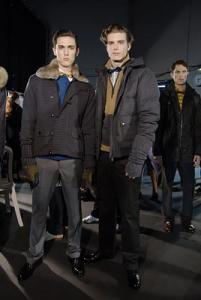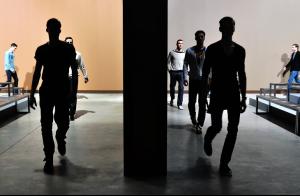Frances Elena Farmer (September 19, 1913 – August 1, 1970) was an American actress of stage and screen. She is perhaps better known for sensationalized and fictional accounts of her life, and especially her involuntary commitment to a mental hospital. Farmer was the subject of three films, three books, and numerous songs and magazine articles.
Early life and education
Farmer was born in Seattle, Washington, to Ernest Melvin Farmer and Lillian Van Ornum Farmer. In 1931, while attending West Seattle High School, she entered and won $100 from The Scholastic Art & Writing Awards, a writing contest sponsored by Scholastic Magazine, with her controversial essay God Dies. It was a precocious attempt to reconcile her wish for, in her words, a "superfather" God, with her observations of a chaotic, seemingly godless, world. In 1935, as a student at the University of Washington, Farmer won a subscription contest for the leftist newspaper The Voice of Action. First prize was a trip to the Soviet Union, which she took despite her mother's strong objections, in order to see the pioneering Moscow Art Theater. These two incidents fostered accusations that Farmer was both an atheist and a Communist.
Farmer studied drama at the University of Washington. During the 1930s, its drama department productions were considered citywide cultural events and attended accordingly. While there she starred in plays including Helen of Troy, Everyman and Uncle Vanya. In late 1934, she starred in the school's production of Alien Corn, speaking foreign languages, playing the piano, and receiving rave reviews in what was then the longest-running play in the department's history.
Career
Early film career and first marriage
Returning from the Soviet Union in the summer of 1935, Farmer stopped in New York City, hoping to launch a legitimate theater career. Instead, she was referred to a Paramount Pictures talent scout, Oscar Serlin, who arranged for a screen test. Paramount offered her a 7-year contract. Farmer signed it in New York on her 22nd birthday and moved to Hollywood. She had top billing in two well-received 1936 B-movies. She wed actor Leif Erickson in February 1936 while shooting the first of the movies. Later that year, Farmer was cast opposite Bing Crosby in her first "A" feature, Rhythm on the Range. During the summer of 1936, she was loaned to Samuel Goldwyn to appear in Come and Get It, based on the novel by Edna Ferber. Both of these films were sizable hits, and her portrayals of both the mother and daughter in Come and Get It were praised by the public and critics, with several reviews greeting Farmer as a new-found star.
A rebellious star
Farmer was not entirely satisfied with her career, however. She felt stifled by Paramount's tendency to cast her in films which depended on her looks more than her talent. Her outspoken style made her seem uncooperative and contemptuous. In an age when the studios dictated every facet of a star's life, Farmer rebelled against the studio's control and resisted every attempt they made to glamorize her private life. She refused to attend Hollywood parties or to date other stars for the gossip columns. However, Farmer was sympathetically described in a 1937 Colliers article as being indifferent about the clothing she wore and was said to drive an older-model "green roadster."
Hoping to enhance her reputation as a serious actress, she left Hollywood in 1937 to do summer stock at the Pinebrook Theatre in Connecticut. There she attracted the attention of director Harold Clurman and playwright Clifford Odets. They invited her to appear in the Group Theatre production of Odets' play Golden Boy. Her performance at first received mixed reviews, with Time magazine commenting that she had been miscast. Due to Farmer's box office appeal, however, the play became the biggest hit in the Group's history. By 1938, when the production had embarked on a national tour, regional critics from Washington D.C. to Chicago gave her rave reviews.
Farmer with Tyrone Power in Son of Fury (1942).Farmer had an affair with Odets, but he was married to actress Luise Rainer and didn't offer Farmer a commitment. Farmer felt betrayed when Odets suddenly ended the relationship; and when the Group chose another actress for its London run—an actress whose family funded the play—she came to believe that The Group had used her drawing power selfishly to further the success of the play. She returned to Hollywood, and arranged with Paramount to stay in Los Angeles for three months out of every year to make motion pictures. The rest of her time she intended to use for theater. Her next two appearances on Broadway had short runs. Farmer found herself back in Los Angeles, often loaned out by Paramount to other studios for starring roles. At her home studio, meanwhile, she was consigned to costarring appearances, which she often found unchallenging.
By 1939, her temperamental work habits and worsening alcoholism began to damage her reputation. In 1940, after abruptly quitting a Broadway production of a play by Ernest Hemingway, she starred in two major films, both loan-outs to other studios. A year later, however, she was again relegated to co-starring roles. Her performance in the film Son of Fury (1942) was critically praised. In 1942, Paramount canceled her contract, reportedly because of her alcoholism and increasingly erratic behavior during pre-production of Take A Letter, Darling. Meanwhile, her marriage to Erickson had disintegrated and ended in divorce in 1942.
Legal and psychological problems
Arrest
On October 19, 1942, Farmer was stopped by the police in Santa Monica for driving with her headlights on bright in the wartime blackout zone that affected most of the West Coast. Some reports say she was unable to produce a driver's license and was verbally abusive. The police suspected her of being drunk and she was jailed overnight. Farmer was fined $500 and given a 180-day suspended sentence. She immediately paid $250 and was put on probation.
By January 1943, she failed to pay the rest of the fine and a bench warrant was issued for her arrest. At almost the same time, a studio hairdresser filed an assault charge alleging that Farmer had dislocated her jaw on the set. The police traced Farmer to the Knickerbocker Hotel in Hollywood. Getting no answer, they entered her room with a pass key. They reportedly found her in bed (some stories include an episode involving the bathroom) and made her dress quickly. By all accounts, she did not surrender peacefully.
At her hearing the next morning, she behaved erratically. She claimed the police had violated her civil rights, demanded an attorney, and threw an inkwell at the judge. He immediately sentenced her to 180 days in jail. She knocked down a policeman and bruised another, along with a matron. She ran to a phone booth where she tried to call her attorney, but was subdued by the police. They physically carried her away as she shouted, “Have you ever had a broken heart?”
Newspaper reports gave sensationalized accounts of her arrest. Through the efforts of her sister-in-law, a deputy sheriff in Los Angeles County, Farmer was transferred to the psychiatric ward of L.A. General Hospital. There she was diagnosed with "manic depressive psychosis."
First hospitalization
Within days, having been sent to the San Fernando Valley and the Kimball Sanitarium in La Crescenta, Farmer was diagnosed with paranoid schizophrenia. She was given insulin shock therapy, a treatment then accepted as standard psychiatric procedure but later discredited. The side effects included intense nausea.
Her family later claimed they did not give their consent to the treatment, as documented in her sister's self-published book, Look Back in Love, and in court records. The sanitarium was a minimum-security facility. After about nine months, Farmer walked away one afternoon and went to her half-sister Rita's house, over 20 miles away. The pair called their mother in Seattle to complain about the insulin treatment.
Lillian Farmer traveled to California and began a lengthy legal battle to have guardianship of her daughter transferred from the state of California to her. Although several psychiatrists testified that Farmer needed further treatment, her mother prevailed. The two of them left Los Angeles by train on September 13, 1943.
Western State Hospital and later life
Farmer moved back in with her parents in West Seattle, but she and her mother fought bitterly. Within six months, Farmer physically attacked her mother. Her mother then had Frances Farmer committed to Western State Hospital at Steilacoom, Washington. There, Farmer sometimes received electro-convulsive shock treatment (ECT). Three months later, during the summer of 1944, she was pronounced "completely cured" and released.
While traveling with her father to visit at an aunt's ranch in Reno, Nevada, Farmer ran away. She spent time with a family who had picked her up hitchhiking, but she was eventually arrested for vagrancy in Antioch, California. Her arrest received wide publicity. Offers of help came in from across the country, but Farmer ignored them all. After a long stay with her aunt in Nevada, Farmer went back to her parents. At her mother's request, at age 32, Farmer was recommitted to Western State Hospital in May 1945 and remained there almost five years, with the exception of a brief parole in 1946.
Life after hospitalization
On March 23, 1950, at her parents' request, Farmer was paroled back into her mother's care. She took a job sorting laundry at the Olympic Hotel in Seattle. This was the same hotel where Farmer had been fêted in 1936 at the world premiere of Come and Get It. Farmer believed her mother could have her institutionalized again. In 1953, at her own request, 10 years after the arrest at the Knickerbocker Hotel, a judge legally restored Farmer's competency and full civil rights.
After a brief second marriage to utility worker Alfred H. Lobley, in 1954 Farmer moved to Eureka, California, where she worked anonymously for almost three years in a photo studio as a secretary/bookkeeper.
[edit] Comeback attempt
In 1957, Farmer met Leland C. Mikesell, an independent broadcast promoter from Indianapolis who helped her move to San Francisco. He got her work as a receptionist in a hotel and arranged for a reporter to recognize her and write an article. This led to renewed interest from the entertainment world.
Farmer told Modern Screen magazine, "I blame nobody for my fall... I think I have won the fight to control myself." She made two appearances on The Ed Sullivan Show and also appeared on This Is Your Life. When asked about her alcoholism and mental illness, Farmer said she had never believed she was mentally ill. She commented, "if a person is treated like a patient, they are apt to act like one."
In August 1957, Farmer returned to the stage in New Hope, Pennsylvania, for a summer stock production of The Chalk Garden.
Through the spring of 1958, Farmer appeared in several live television dramas, some of which are preserved on kinescope. The same year, she made her last film, The Party Crashers, produced by Paramount. During this period, she divorced Lobley and married Mikesell. Her national comeback ended in Indianapolis after six performances of The Chalk Garden when she accepted an offer to host afternoon movies on a local TV station. By March 1959 national wireservice reports were indicating she had separated from Mikesell and he was suing her for breach of contract. Their divorce was finalized in 1963 in Indianapolis.
Indianapolis
From 1958 to 1964, Farmer hosted a successful TV show called Frances Farmer Presents, which remained number 1 in its time slot for the entire duration of its run. She was also in demand as a public speaker. In 1959 she was baptized in the Roman Catholic faith at St. Joan of Arc Church in Indianapolis (baptism confirmed by records procured by the secretary of the parish). During the early 1960s, Farmer was actress-in-residence at Purdue University and appeared in some campus productions.
By 1964, however, her behavior had turned erratic again. Farmer was fired, re-hired, and fired from her television program. Her station manager suggested in a 1983 interview that her turn for the worse was the result of an appearance on NBC's The Today Show, which the station manager had arranged. He had hoped to get her good publicity, but believed that being asked about her years of mental illness on national TV may have been too stressful for her.
Farmer's last acting role was in The Visit at Loeb Playhouse on the Purdue University campus in West Lafayette, Indiana, which ran from October 22 to October 30, 1965. During this engagement, she was arrested for drunk driving.
Farmer attempted two small businesses with her friend Jean Ratcliffe, but both failed. She was arrested again for drunk driving and her license was suspended for a year.
Death
In 1970 Farmer died from esophageal cancer. She is interred at Oaklawn Memorial Gardens Cemetery in Fishers, Indiana.
Quotes
"It was pretty sad, because [after the publication of God Dies] for the first time I found how stupid people could be. It sort of made me feel alone in the world. The more people pointed at me in scorn the more stubborn I got and when they began calling me the Bad Girl of West Seattle High, I tried to live up to it."
"It's a nuthouse [Hollywood]. The other day a man phoned and wanted me to endorse a certain brand of cigarettes. I had nothing against them and in fact will smoke them or anything else that comes along, but I didn't know why he was bothering me. I thought maybe if I was nice they'd give me a carton as a thank offering, so I rather tentatively broached the matter of remuneration. What was the endorsement worth, I asked, and he said three thousand dollars. What are you going to do in an atmosphere like that?"
"Never console yourself into believing that the terror has passed, for it looms as large and evil today as it did in the despicable era of Bedlam. But I must relate the horrors as I recall them, in the hope that some force for mankind might be moved to relieve forever the unfortunate creatures who are still imprisoned in the back wards of decaying institutions." -Farmer on her past experience as a mental patient.
Lobotomy claims
Sensationalized accounts
In the years following Farmer's death in 1970, her treatment at Western State was the subject of serious discussion and wild speculation. Kenneth Anger included a chapter relating her breakdown in Hollywood Babylon. Farmer's ghostwritten, posthumously published autobiography Will There Really Be A Morning? described a brutal incarceration. It claimed Farmer had been brutalized and mistreated in numerous ways. Some of the claims included being forced to eat her own feces and act as a sex slave for male doctors and orderlies.
In 1978, Seattle film reviewer William Arnold published Shadowland, which for the first time alleged that Farmer had been the subject of a transorbital lobotomy. Scenes of Farmer being subjected to this lobotomy procedure were part of the 1982 film Frances, which had initially been planned as an adaptation of Shadowland, though its producers ultimately reneged on their agreement with Arnold.[2] During a court case against Brooksfilm (the film's producers), Arnold revealed that the lobotomy episode and much of his biography about Farmer was "fictionalized".[2] Years later, on a DVD commentary track of the film Frances, director Graeme Clifford stated, "We didn't want to nickel and dime people to death with facts."[4]
Farmer's sister, Edith, denied that the procedure was done. She said the hospital asked her parents' permission to perform the lobotomy, but her father was “horrified” by the notion and threatened legal action "if they tried any of their guinea pig operations on her."[5]
Medical archives
Western State Hospital recorded all the lobotomies performed during Farmer's period there. Since lobotomies were considered ground-breaking medical procedure, the hospital did not attempt to conceal its work. Although nearly 300 patients received the procedure, no evidence supports a claim that Farmer was among them.
Newspaper interviews
In 1983 Seattle newspapers interviewed former hospital staff members, including all the lobotomy ward nurses who were on duty during Farmer's years at Western State, and they all stated Farmer was never a patient on that ward. Freeman's private patient records contained no references to Farmer. Dr. Charles Jones, Psychiatric Resident at Western State during Farmer's stays, also stated that Farmer was never given a lobotomy.
Filmography
Motion pictures
Year Film Role Notes
1936 Too Many Parents Sally Colman
Border Flight Anne Blane
Rhythm on the Range Doris Halliday
Come and Get It Lotta Morgan/Lotta Bostrom aka Roaring Timbers (USA: reissue title)
1937 Exclusive Vina Swain
The Toast of New York Josie Mansfield
Ebb Tide Faith Wishart
1938 Ride a Crooked Mile Trina aka Escape from Yesterday (UK)
1940 South of Pago Pago Ruby Taylor
Flowing Gold Linda Chalmers
1941 World Premiere Kitty Carr
Badlands of Dakota Calamity Jane
Among the Living Elaine Raden
1942 Son of Fury: The Story of Benjamin Blake Isabel Blake
1943 I Escaped from the Gestapo montage sequence aka No Escape (UK)
1958 The Party Crashers Mrs. Bickford
Television
Year Film Role Notes
1958 Playhouse 90 Val Schmitt episode Reunion
Matinee Theatre episode Something Stolen, Something Blue
Studio One Sarah Walker episode Tongues of Angels
1958-1964 Frances Farmer Presents Host Herself
Depictions
Jessica Lange played Farmer in the 1982 film Frances, for which she was nominated for an (Best Actress). Kim Stanley was nominated for Best Supporting Actress for portraying Farmer's mother. The film contained a fictional scene which depicted Farmer undergoing a transorbital lobotomy. In Hollywood style, the film also omitted numerous facts and added a fictional life-long, love-interest character named "Harry."
Susan Blakely portrayed Farmer in a 1983 television production Will There Really Be a Morning?, which was named after Farmer's autobiography. Academy Award winner Lee Grant portrayed her mother in the same production.
The Nirvana song "Frances Farmer Will Have Her Revenge on Seattle" which was written by fellow Seattle resident, Kurt Cobain, was named after Farmer.
